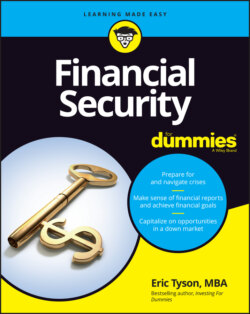Читать книгу Financial Security For Dummies - Eric Tyson - Страница 46
Dealing with a natural disaster
ОглавлениеTornados, earthquakes, floods, and hurricanes — oh my!
Yes, if you live in the United States, you’re likely at risk for one (or more) of these where you live. And even if you live in an area deemed at low risk for these types of natural disasters, unusual events that rarely happen may be your unfortunate fortune. Consider the good folks living in the normally warm southern states like Texas that got clobbered in early 2021 with harsh winter conditions complete with multiple snowstorms, below freezing temperatures for a full week, power outages, and more.
It had been decades since such extreme winter conditions hit the area and combined with the power outages, led to broken pipes and displaced homeowners and renters. Coming in the aftermath of the COVID-19 pandemic, it also hurt some small businesses.
During natural disasters, I’ve seen some people’s lives turned upside down for many months or longer. Without adequate insurance (such as business interruption insurance), the financial consequences can be devastating. Even with insurance, folks can lose big financially, especially if the disaster disrupts or devastates their small business. Supply chain issues or customers unable to buy may bring some small businesses to a halt, and many small-business owners lack contingent business interruption insurance that may cover such problems.
If you’re dealing with the aftermath of a natural disaster, of course, it’s too late then to do anything about the insurance you didn’t have, but there are many things you can do to deal with your situation:
Ensure your personal safety first. Frontline safety responders will tell you that it’s often the case that there are more fatalities in the aftermath of some natural disasters than from the disaster itself. With hurricanes, for example, numerous victims die in the flooding that follows the storm. Long power outages lead to spikes in carbon monoxide deaths as people make mistakes in rigging up generators near their home or in their garage. Downed power lines have led to some folks being electrocuted. So, please be careful in the aftermath of a natural disaster and don’t rush out to do things that can wait or take unnecessary risks like trying to drive through a water-covered roadway.
Think outside the box if your small business is in trouble. To survive and thrive as a small-business owner, you need to be resilient and flexible. Conditions change, and a disruption from a natural disaster can be upsetting. So, get creative about how to find and serve your customers when the landscape changes. Maybe if your customers can’t come to you, you can go to them. Perhaps you can serve them through video calls/conferencing. We’re all creatures of habit, and it can be hard to change the way we are accustomed to and prefer doing things.
Take a hard look at your expenses. If you’re suddenly facing a period of reduced income due to natural disaster, take a fresh look at your spending and cut non-necessities as needed. You can always restart them, and you may well find that some providers will offer you better pricing if you’re set to cancel due to short-term affordability issues. Don’t cut needed catastrophic insurance coverage.Scrutinize your small-business expenses in a similar fashion. Just be careful to not cut expenditures that could cut into sales, compromise the quality of your products or services, or leave you exposed insurance-wise.
If you have insurance claims, be sure to document everything and be ready to negotiate and fight for what you’re due. Some insurance companies do the right thing, but too often, they will view your claim as a business expense and do what they can to minimize your payments.
